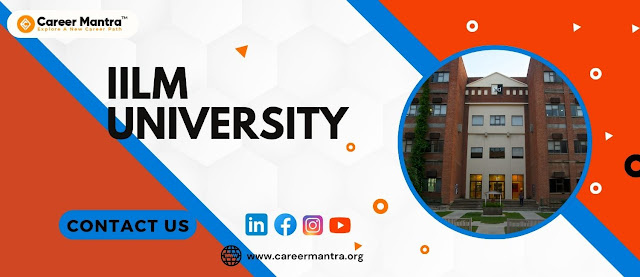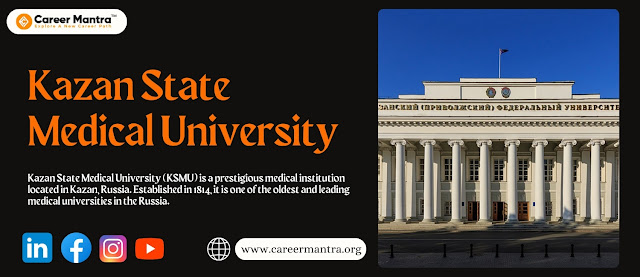IILM University is one of the most esteemed institutions in India, offering a wide range of undergraduate, postgraduate, and doctoral programs designed to equip students with the skills, knowledge, and practical exposure necessary for success in today's competitive world. Situated in a vibrant academic environment, IILM University focuses on imparting high-quality education with a unique blend of academic excellence, innovation, and global exposure. Whether you're considering pursuing business, law, design, engineering, or any other field, IILM University is an ideal choice for aspiring students.
In this article, we will explore various aspects of IILM University, including its courses, facilities, eligibility, admission process, and career prospects. So, if you're considering IILM University as your academic destination, read on for all the essential details.
About IILM University
IILM University is a private university located in Greater Noida, Uttar Pradesh. It is part of the IILM Group, which has been offering quality education for several years. The university aims to provide a world-class education that fosters creativity, leadership, and entrepreneurship among its students. With a commitment to academic excellence, IILM University blends theoretical knowledge with practical skills, preparing its graduates for success in the global marketplace.
The university offers a wide array of programs in various fields, including Business, Engineering, Law, Design, and more. IILM University provides its students with a well-rounded learning experience, combining cutting-edge curricula, experienced faculty, state-of-the-art infrastructure, and industry exposure to help them excel in their careers.
IILM University Courses and Programs
IILM University offers a wide variety of programs across multiple disciplines. Here's a closer look at the different courses available:
Undergraduate Programs
BBA (Bachelor of Business Administration)
The BBA program at IILM University focuses on developing managerial skills in students, preparing them for leadership roles in various industries. The program covers key areas such as business strategy, marketing, operations, finance, and human resource management.B.Tech (Bachelor of Technology)
IILM University offers B.Tech programs in various engineering fields, including Computer Science, Civil, Mechanical, and Electronics Engineering. The curriculum is designed to provide students with hands-on experience in engineering and technology, along with a solid foundation in core principles.BA LLB (Bachelor of Arts and Bachelor of Laws)
The integrated BA LLB program combines law with social sciences, preparing students for a career in legal practice. This program provides students with a strong understanding of the legal system, constitutional law, criminal law, and corporate law.B.Des (Bachelor of Design)
The B.Des program at IILM University is aimed at aspiring designers who wish to explore creative fields such as product design, graphic design, and digital media design. The curriculum blends creativity with design thinking, preparing students for careers in design studios, advertising agencies, and digital media companies.BCA (Bachelor of Computer Applications)
IILM University's BCA program focuses on providing students with technical expertise in computer applications, software development, and IT services. The course also emphasizes problem-solving and analytical skills, which are essential in the IT industry.
Postgraduate Programs
MBA (Master of Business Administration)
The MBA program at IILM University is designed for students who aspire to take on leadership and management roles in the corporate world. The course covers various aspects of business management, including marketing, finance, operations, entrepreneurship, and strategic management.M.Tech (Master of Technology)
For students interested in advancing their technical knowledge, IILM University offers M.Tech programs in various specializations like Computer Science, Electronics, and Mechanical Engineering. The program focuses on advanced topics in technology, research, and development.LLM (Master of Laws)
The LLM program at IILM University is designed to provide legal professionals with an in-depth understanding of various branches of law, including constitutional law, intellectual property, international law, and more.M.Des (Master of Design)
IILM University's M.Des program is perfect for individuals who wish to further their expertise in design. Students can specialize in areas like industrial design, user experience (UX) design, or communication design.
Doctoral Programs
IILM University offers PhD programs in multiple disciplines, including Business, Engineering, Law, and Design. The doctoral programs are designed to foster research, critical thinking, and innovation, preparing students for roles in academia, research institutions, and high-level industry positions.
IILM University Admission Process
The admission process at IILM University is designed to be both transparent and accessible. Here's a step-by-step guide to the process:
1. Application Form
Students interested in applying to IILM University can fill out the online application form available on the university's website. The application form requires basic details such as personal information, academic background, and course preferences.
2. Entrance Exams
Admission to most programs at IILM University is based on the university's entrance exams. For some courses like MBA, candidates may need to appear for national-level entrance exams such as CAT, MAT, XAT, or GMAT. Specific courses may have their own entrance exams or consider other qualifying exams.
3. Personal Interview
After clearing the entrance exam, shortlisted candidates are invited for a personal interview. The interview assesses the candidate's academic background, communication skills, and overall personality.
4. Document Verification
After the interview, candidates need to submit relevant documents, including mark sheets, certificates, and proof of identity for verification. Successful candidates will receive a confirmation of admission.
5. Fee Payment
Once the admission is confirmed, candidates are required to pay the necessary fees to complete the admission process.
IILM University Fees Structure
The fee structure at IILM University varies depending on the course and program. Generally, the fees for undergraduate programs range from INR 1,00,000 to INR 2,00,000 per year, while postgraduate programs may have higher fees, ranging from INR 2,00,000 to INR 3,50,000 per year.
It is important to check the exact fee structure for the desired program by visiting the official website of IILM University or contacting the admissions office.
IILM University Campus and Facilities
IILM University boasts state-of-the-art infrastructure and facilities that create an enriching environment for students. Some of the key facilities include:
- Modern Classrooms: Equipped with the latest technology to provide an interactive learning experience.
- Library: A well-stocked library with access to digital resources, journals, and research materials.
- Computer Labs: Advanced computer labs with high-speed internet and access to software needed for various programs.
- Hostels: Comfortable and well-maintained hostel facilities for outstation students.
- Sports Facilities: A range of indoor and outdoor sports facilities to encourage physical fitness.
- Cafeteria: A spacious and hygienic cafeteria offering a variety of food options.
- Industry Linkages: IILM University has strong ties with industry leaders, providing students with internships, industrial visits, and placement opportunities.
IILM University Career Services
One of the standout features of IILM University is its strong focus on employability. The university has a dedicated Career Services Department that works closely with students to enhance their employability prospects. Some of the career services offered include:
- Internships: IILM University facilitates internships with top companies to help students gain practical industry experience.
- Placements: The university has a robust placement cell that organizes recruitment drives, ensuring that students secure jobs in leading companies across various sectors.
- Skill Development: The university offers soft skills training, personality development workshops, and mock interviews to help students prepare for the job market.
- Alumni Network: The extensive alumni network of IILM University offers mentorship and networking opportunities for current students.
IILM University Career Opportunities
Graduates of IILM University have the opportunity to work in a variety of sectors, including business, technology, law, and design. Some popular career paths for IILM University graduates include:
Business Manager
Graduates of business programs can take on roles in management, marketing, operations, or finance.Software Engineer
Engineering graduates can work as software developers, IT consultants, or systems engineers in top tech companies.Legal Advisor
Law graduates can work as legal advisors, corporate lawyers, or pursue roles in the public sector.UX Designer
Graduates of design programs can work as user experience designers, graphic designers, or product designers in creative industries.
IILM University Salary Prospects
The salary prospects for IILM University graduates depend on the course, industry, and individual performance. On average, salaries range from INR 3,00,000 to INR 10,00,000 annually for fresh graduates. Top-performing students who secure positions in leading firms may earn even higher salaries, especially in sectors like management, technology, and law.
Conclusion
IILM University offers a comprehensive and world-class education across a variety of disciplines, preparing students for successful careers in the global marketplace. With its robust curriculum, experienced faculty, state-of-the-art infrastructure, and strong industry links, IILM University stands as an excellent choice for students seeking a high-quality education. Whether you're pursuing a career in business, engineering, law, or design, IILM University provides the tools and opportunities necessary to help you achieve your career goals.








.jpg)
